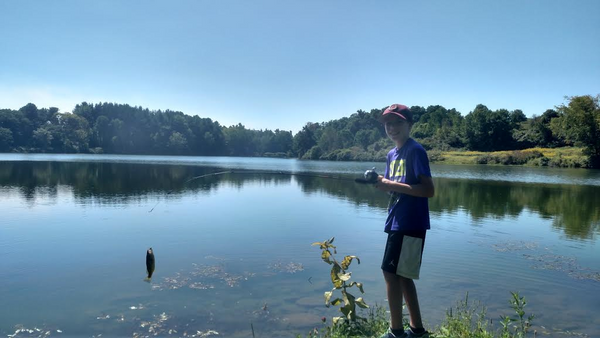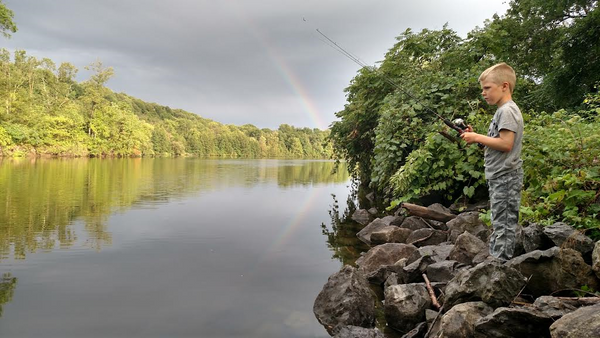Lessons in Fishing by Mark Usyk
I could see the pain on his face as we walked to the Jeep. Not physical pain, but mental anguish. “But Dad, I’m in a slump! I haven’t gotten a hit in two games!” There was nothing I could do to calm him down. My eleven year old little leaguer had been beating himself up on the field for not seeing home plate other than to strike out, and letting a couple grounders roll by to the point that he was close to a meltdown. We were reaching critical mass here and it seemed there was nothing I could do as a father but watch. He wouldn’t listen, but I wanted to tell him I’d been there. Not on the field, I never played ball, but on the water.
If he knew how many times in a row, how long of a stretch his great fisherman father had gone to bat out on the water and struck out he might have been able to see that two games was nothing, considering that was only about six to eight “at bats,” when I could claim going fishless with a hundred times the casts to his swings. There’s a lesson here, and I think there’s way more to be taught and learned from fly fishing than meets the eye.
There’s the cast. The cast can be the single toughest obstacle to learn and overcome, and coincidentally it’s the very first thing you must learn before you can go any further. That part of the equation alone accounts for the lower number of fly anglers to conventional spin fisherman hands down. Fishing is supposed to be relaxing and simple. Many people just don’t see the worth in getting frustrated over something they’ve been doing with ease with a spinning rod forever.
Then there’s what you do after the cast. If you’re talking dry flies you’ve got currents, feeding lanes, and lines to mend to control a natural drift of something you probably can hardly see. Not to mention the whole matching the hatch thing. Patterns, sizes, colors, nymphs, emergers, spinners, oh my! Let’s face it, it’s not as easy and simple as tossing a spinner or a worm under a bobber. Again, why does it need to be so complicated? And streamers? Do I strip it fast or slow? Do I use weighted or not? Floating line? Sink tip? Full sinking? Coming from a new fly angler there’s always a never ending roll of questions, and if you’re smart, the questions never end no matter how long you’ve been doing it. But these aren’t the lessons I think are the most valuable for kids to get out of fly fishing today, or fishing in general for that matter.
In today’s world somehow we’ve gotten to the point where somehow everyone makes the team, and everyone gets a trophy. That doesn’t teach them anything. Fishing on the other hand still teaches all the same lessons that you learned as a kid, that your parents learned, and that your grandparents learned. In a society where we’ve come to shield our children from the reality of failure, of not being good enough, those lessons are still with us in fishing.
You can tie on the exact match to the hatch, make the most perfect cast in the world, in the most ideal conditions you’ve ever seen, three perfect swings… and still strike out. There’s nothing you can do about it in the end except step back up to the plate, assess the next pitch, and take another swing. Fish are the great equalizer of all men. They don’t care if you have a $500 rod or a $50 rod, they don’t care who ties your flies, and they don’t care how far you drove or how many casts you made in preparation for the game. Their brains are too small to consider such trivial things. They rely on something we’ve lost today. Instinct and a will to live. They take one insect and show indifference to the next for no other reason than they do. And you just have to deal with that failure and move on. You didn’t get the trophy. Maybe another time. Maybe not.
When every kid in the league makes the All Star team because everyone needed to be included then the lessons previous generations learned are lost, and we end up with a society that feels entitled to everything without having to earn it. No one is entitled to a fish. You have to work for it, and even then you might go home empty handed, which could be the greatest lesson any kid ever learns.


